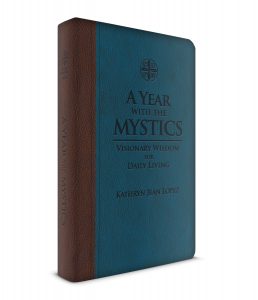Look around any crowded place and you’re likely to find that most people are staring intently at their phones, immersed in entertainment.
Whether watching a movie, playing a game, or swiping through other people’s lives on Instagram, modern man lives a kind of collective anesthesia, or perhaps more accurately, a willing suspension of souls and minds, much like an ancient insect is frozen in amber.
This deep mind-freeze of modern culture stands poles apart from the spiritual life and is its photographic negative.
The person immersed in prayer appears quiet and still, but inside his intellect and soul are striving, groaning, and climbing. Prayer can be frantic questioning and listening intently for answers, and also the inner joyous hallelujah that only the Giver of best gifts can hear.
Prayer is also abandonment, experienced as a vertiginous drop into terrifying nothingness, followed by the rescuing embrace of the Lover who sweetens and transforms even the worst suffering.
Prayer is the only way toward personal perfection, toward the person our Creator envisioned when he first thought each of us into being, and away from the crabby, bitter versions we’ve made of ourselves.
Perhaps we moderns are the cohort of humanity least prepared to truly pray, even before the advent of our phones. Entertainment, news, work, exercise, hobbies, vacations, crowds, constant din and noise; they have long been keeping us away from that better, elevating thing. And too many of us don’t even know where to start.
Luckily for us Christians, we have a rich thousands-year-old tradition to learn from, of men and women who severed the ties that bound their own souls to material concerns, enabling them to fly to heaven. When we find the silent place to pray and fix the time, we can use their wisdom and experience to help us achieve the great possibilities of prayer.
Access then becomes the problem. We are, most of us, unschooled on this topic. Perhaps we’ve heard of some of the great mystics like St. Teresa of Ávila or St. John of the Cross, or modern spiritual masters like Urs von Balthasar and St. Maximilian Kolbe, but we don’t know much more than their names.
A new and beautiful book by Kathryn Jean Lopez is the answer to this dilemma. It’s called “A Year with the Mystics,” and it will open for your soul a world of possibilities.
The book is elegantly bound — a family keepsake and a worthy gift — with supple covers and delicately tinted paper. And on each of the 365 pages is a perfect gem from a giant of the faith, spanning over 2,000 years of shining wisdom and illuminating thought.

Collated and arranged to strike deep chords and inspire humble, awe-filled contemplation, it is a gem itself, from a woman who evidently knows what our anesthetized minds need to jolt them into the attitude of prayer.
“To suffer gladly when we must for the love of others is indeed not only the closest imitation of Christ, it is the essence of our own Christhood.”
“Resign yourself on [God] with loving trust and remain buried in him, forgetting yourself and losing yourself quite completely, not as to your spirit but as to your sensuality and the possession of your body and soul.”
“To wake up in Love, move about in Love, fall asleep in Love, my soul in his soul, my heart in his heart, my eyes within his eyes, so that by my contact with him, he will purify me and free me from my wretchedness.”
“[God] wants you to become a living force for all mankind, lights shining in the world … bathed in the glory of him who is light of heaven.”
“If you experience struggle in your flesh, if means you have not surrendered. … If you have no struggle at all, rather be afraid and question yourself.”
These are a few quotes from the masters of prayer in the pages of “A Year with the Mystics.” Let them whet your appetite for more. Let them incite you to live the deep and full life of one who unites himself daily with the source of life himself.
Take this lovely book to your place of silence, in front of the tabernacle perhaps, or in the shining presence of the Sacrament. Take it slowly, one page at a time, and reflect.
You will perhaps start to wonder how you let yourself live for so long in a state of suspended animation, when all this glorious existence was waiting on the other side of prayer.

